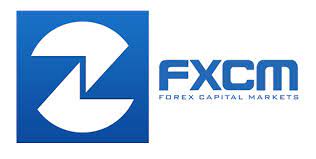
Global Forex Regulatory Changes – Impact on Traders and Providers
The global forex market has witnessed expansive growth and transformation, influenced by technological advancements and evolving regulatory frameworks. Recent regulatory changes are poised to significantly impact trading practices and the operational paradigms of service providers. Understanding these changes is crucial for market participants to navigate the evolving landscape effectively.
This article will cover changes in the forex landscape and their impact on traders and service providers.
FX Regulatory Changes Across the Globe
Regulatory bodies around the world, including the NFA in the United States, CySec in Cyprus, the FCA in the United Kingdom, and others in Asia, have introduced measures impacting traders and service providers.
United States (NFA)
In the United States, the National Futures Association (NFA) plays a pivotal role in regulating the Forex market. Recent regulations require Forex brokers to register as Introducing Brokers (IBs) and become NFA members, ensuring a higher level of scrutiny and accountability.
These regulations aim at enhancing transparency and fairness, protecting the rights and interests of traders by imposing strict guidelines on communications and prohibiting misleading claims about services such as “no-slippage” guarantees unless they can be unequivocally demonstrated.
Additionally, the US has also moved to a T+1 settlement cycle for U.S. securities for quicker FX settlement processes and to avoid disrupting market functioning
Cyprus (CySec)
Cyprus, through its Cyprus Securities and Exchange Commission (CySec), has established itself as a significant hub for Forex brokers. CySec’s stringent capital requirements, client fund segregation, and detailed reporting ensure the solvency and transparency of brokers operating within its jurisdiction.
These measures align with the European Union’s financial directives, offering a harmonised regulatory environment conducive to protecting investors and maintaining market integrity.
United Kingdom & Europe
The Financial Conduct Authority (FCA) in the United Kingdom has been proactive in implementing measures to protect retail traders. Notably, the FCA introduced leverage limits and mandated that brokers offer negative balance protection.
These measures limit traders’ risk exposure, ensuring they do not lose more money than deposited. This approach reflects a commitment to safeguarding investors from excessive market volatility and potential losses.
In Europe, with the introduction of the Unique Product Identifier (UPI) System, the identification and classification of OTC derivatives products have been improved. This has led to improvements in data quality and reporting accuracy.
Join the global network of professionals and find the ideal trading and liquidity partners now!
What Impact Do They Have on FX Traders and Providers?
These regulatory changes directly impact e the traders and providers in the forex market, both retail and institutional.
For traders, these regulatory changes collectively provide a more secure and transparent trading environment. Enhanced protections, such as stricter broker scrutiny, capital requirements, and leverage limits, help prevent deceptive practices and excessive risk exposure. This fosters greater confidence and stability in the forex market, making it more appealing to both novice and experienced traders.
For service providers, the new regulations introduce significant operational challenges and compliance costs. Brokers must adapt to higher standards of accountability, financial solvency, and client fund management. While these changes may lead to industry consolidation, with smaller or non-compliant brokers exiting the market, they also present an opportunity for compliant brokers to enhance their credibility and attract a broader client base.
Conclusion
The recent global forex regulatory changes are reshaping the market landscape by promoting transparency, protecting investors, and ensuring market integrity. Traders benefit from a safer trading environment with reduced risk, while service providers must navigate the complexities of increased compliance requirements.
To learn more about trading platforms, follow us on LinkedIn.






